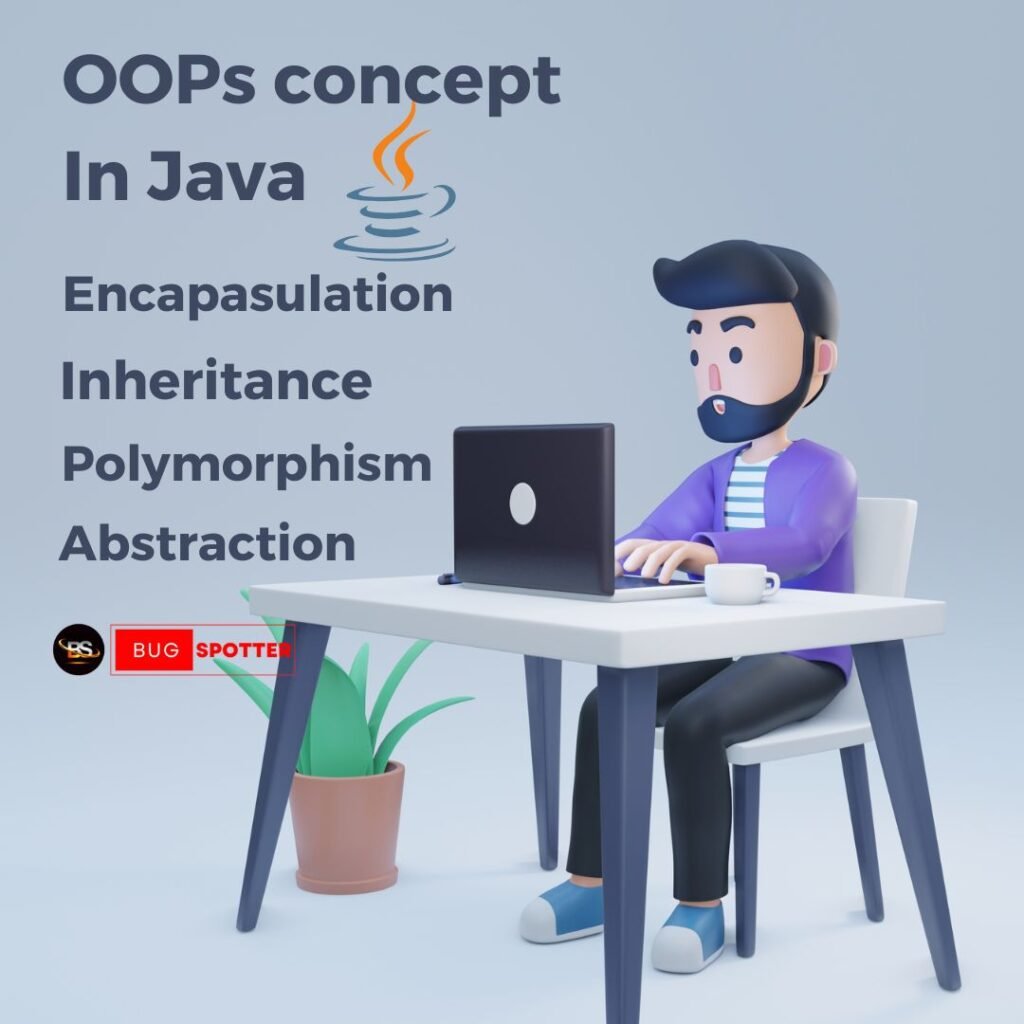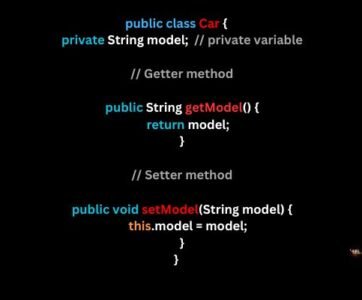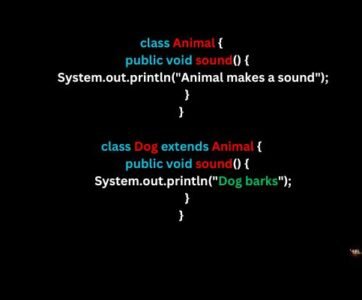What is oops concept in Java
Table of Contents

What is oops concept in Java
The Object-Oriented Programming (OOP) concept in Java refers to a programming paradigm that organizes software design around data, or objects, rather than functions or logic. It is based on several key principles, which help in organizing and structuring the code to be more efficient, reusable, and easier to maintain. The four main OOP principles in Java are:
1. Encapsulation
- Definition: Encapsulation is the process of wrapping data (variables) and the code (methods) that manipulates the data into a single unit called a class.
- Purpose: It helps in data hiding by restricting access to the internal state of the object and only allowing access through well-defined methods (getters and setters).
- Example:

2. Inheritance
- Definition: Inheritance allows a new class (called a subclass or child class) to inherit properties and behaviors (methods) from an existing class (called a superclass or parent class).
- Purpose: It promotes code reusability by allowing new classes to be created based on existing ones.
- Example:

3. Polymorphism
- Definition: Polymorphism means “many forms”. It allows a single entity (like a method or an object) to take on different forms. In Java, polymorphism can be achieved through method overloading and method overriding.
- Purpose: It helps to implement different behaviors based on the object type or method signature.
- Method Overloading: Same method name with different parameters.
- Method Overriding: A subclass provides a specific implementation of a method that is already defined in its superclass.
- Example (Method Overriding):

4. Abstraction
- Definition: Abstraction is the concept of hiding the complex implementation details and showing only the essential features of an object.
- Purpose: It simplifies the interaction with objects by only exposing necessary information and functionality, making the system easier to use and understand.
- Example (Using Abstract Class):

Need of OOPS concept in Java
Object-Oriented Programming (OOP) in Java is essential because it promotes modularity and reusability. By organizing code into classes and objects, it allows developers to break down complex problems into smaller, more manageable pieces. This structure enhances code maintainability and scalability, as changes can be made in one part of the program without affecting others. OOP encourages clear relationships between different parts of the program, which simplifies debugging and testing.
Additionally, OOP in Java improves code security and flexibility through features like inheritance, polymorphism, encapsulation, and abstraction. These concepts allow for more efficient handling of data, hiding implementation details, and creating reusable components. As Java is widely used in enterprise-level applications, OOP plays a crucial role in designing robust, efficient, and easily maintainable software systems.
What are the advantage of oops in java
The advantages of Object-Oriented Programming (OOP) in Java include (modularity) and (code reusability), as OOP allows for breaking down complex systems into manageable objects that can be reused across programs. (Encapsulation) ensures data is securely handled by bundling it with methods and restricting direct access, while (inheritance) enables the reuse of existing code, making it easier to extend and maintain. (Polymorphism) allows flexibility by treating objects of different types through a common interface, and (abstraction) simplifies complex systems by focusing on essential features. These features collectively improve (maintainability), (scalability), and the overall efficiency of software development in Java.



